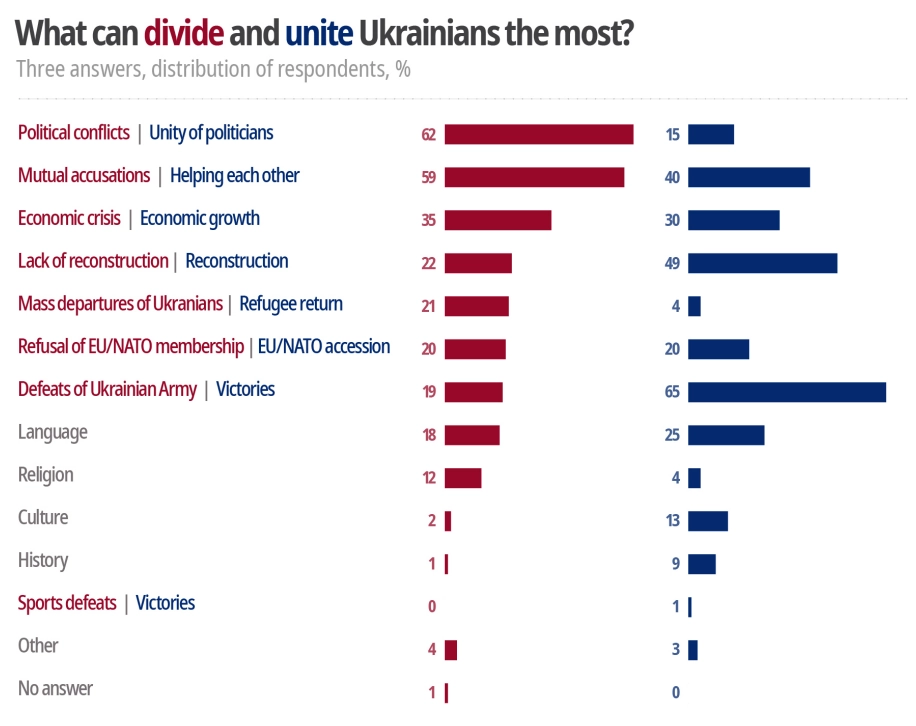25.09.2025
Deputy Director of Rating Group - on Ukrainians' resilience during war. Extracts from international conference

Deputy Director of Rating Group Tetiana Skrypchenko took part in the international scientific conference on the social challenges of the Russian-Ukrainian war from the research center Konflikt und Kooperation im östlichen Europa (Germany).
In the report "Fostering Resilience and Social Cohesion under Occupation", Tetiana Skrypchenko talks about how Ukrainians manage to maintain resilience, how communities unite, and what conclusions should be drawn to further strengthen Ukrainian society. The report is based on data from Rating Group research.
See some of the key insights below. See the full report "Emancipatory Dimensions of In:Security – Strategies of Coping with War Challenges in Ukraine" in the attached file.
On the importance of social resilience
"Efforts to build resilience are not just about survival but also about resistance and empowerment. Resilience helps Ukraine stand up to Russian control, both on the frontline and in society. Community resilience, in particular, plays an important role in establishing emancipatory practices, fostering a sense of agency and security, and rejecting imposed narratives. By focusing on both national unity and local support, Ukraine can make sure that resilience works as a bulwark against outside threats and insecurity."
On the ways of uniting communities
How to strengthen community cohesion? Based on research by the Rating Group and Rating Lab, Tetiana Skrypchenko notes the important understanding that levels of resilience vary by group. For example, resilience is lower among the less affluent and women of all ages. Low resilience in these groups can lead to greater stress, long-term psychological problems, less social participation and higher risks, which exacerbates inequality.
Also based on research by the Rating Group and the Transatlantic Dialogue Center (2024), Tetiana Skrypchenko mentions methods such as, for example, involving local residents in projects aimed at supporting Ukrainian defenders; reviving national customs.
On the experience of the deoccupied regions
"Respondents noted an increased sense of national and regional identity, with many stating that they had become more ‘Ukrainian’ because of the war. It is crucial to consider these experiences and establish institutions for remembering the wartime and occupation experience. Regional initiatives to address collective trauma should be scaled up to national level in order to foster unity and sustain resilience"
Recently, the Rating Group team recently released another study on the resilience and cohesion of Ukrainian society with the participation of sociology professor Natalia Chernysh.
Methodology



.webp)